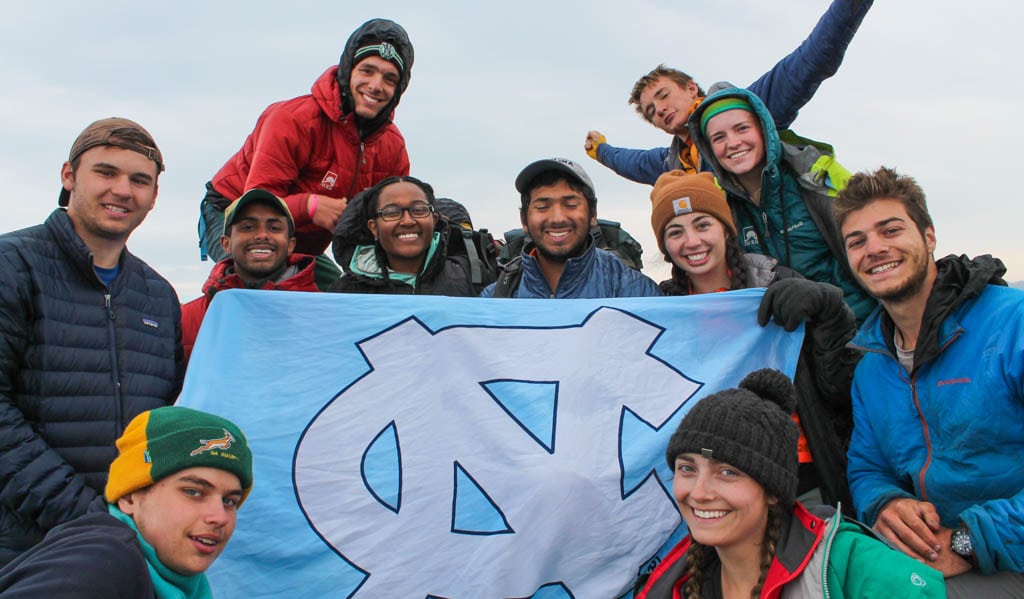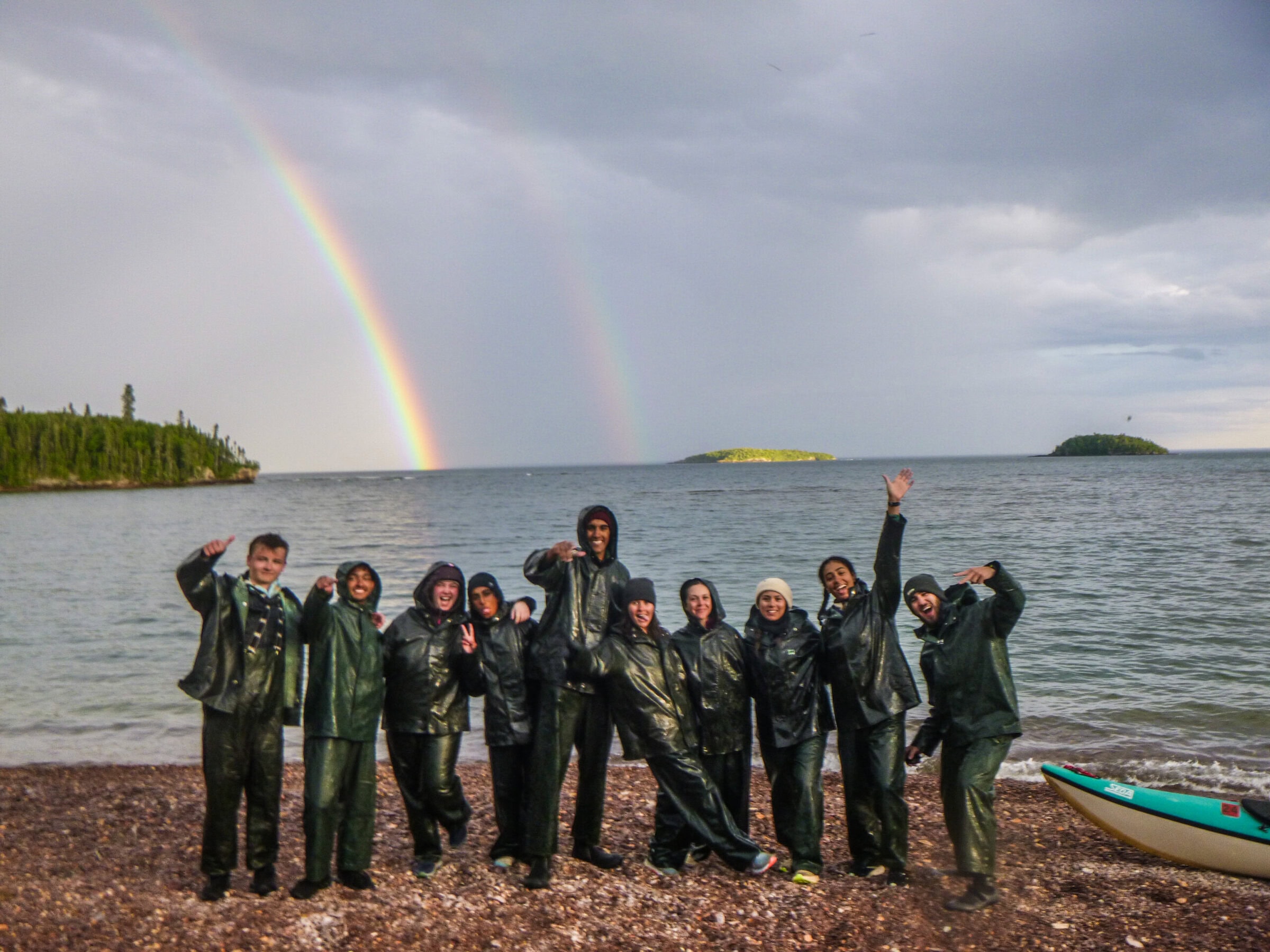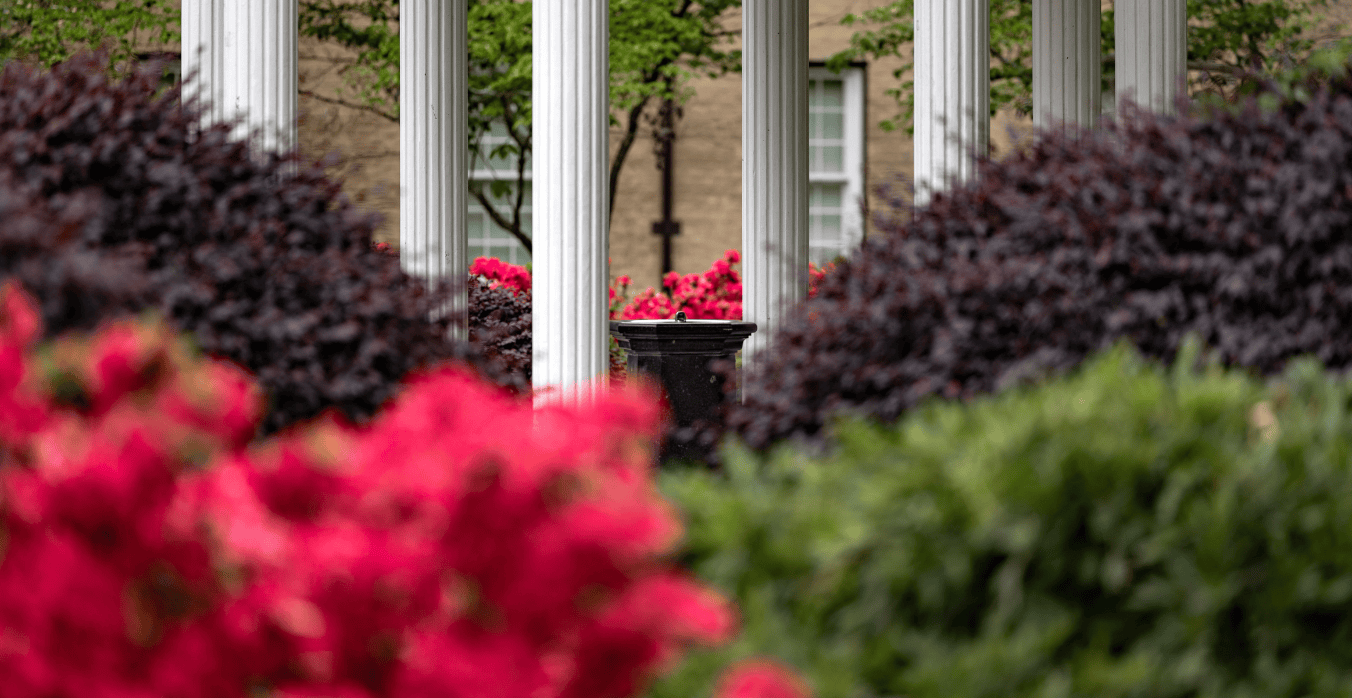
During twenty-five days in Wyoming, I got to know eleven people incredibly well. Other things happened too, but they were less important.
I don’t mean to detract from the ecstasy of a post-thunderstorm sunrise mountain summiting, or to imply that ducking through one side of a waterfall and out the other to find and slide down a fresh hill of snow amounts to anything less than unforgettable. The raw scale of natural beauty I saw on the trip was extraordinary, and I am not nearly a skilled enough wordsmith to convey that here—other than to reiterate that it was extraordinary, and to share a firm, newfound certainty that all lives should one day visit a mountaintop.
Nor do I mean to detract from the impact on myself that inevitably stems from the mental and physical challenges on such a trip. One particular evening we were camped on a rocky peninsula, jutting out into a just-barely liquid lake, the far side of which loomed up into the sky, the edge of a glacier. You would think that, sitting there making dinner, the majesty of our stadium of ice would be inescapable. To somehow be distracted, to think about anything but that, would be unthinkable.
And then the mosquitoes came. In their hundreds and in their thousands they came, and the hitherto hidden foundation of Maslow’s pyramid was revealed: “Distance from Mosquitoes,” upon which talking, thinking, and every other human function depended. It is one thing to know the pop-psychology on a conscious, parsed-from-a-book level, but it is quite another to know deep in your bones the destructive power of a thousand small irritations.
Clad in shorts and a t-shirt I stood, staring down the barrel of oblivion. There and then I decided that the only way forward was to embrace the teachings of Buddha and the Stoics before him, and transcend my earthly pain. To recognize that pain is just a message, and that messages can be ignored. It was an oddly profound experience, embracing those insect needles as they pierced my sunburnt skin, meeting the gazes of the bug-eyed drones with cool acceptance as they landed on the bridge of my nose and the backs of my hands, and knowing that I was the master of myself, untouchable in the castle of my mind.
I lasted about twelve minutes. Then I ran and hid myself inside all the clothing I owned.
As clearly and obviously as you know that if you drop a pen it will fall, or if you spill water it will spread, I have always believed in the total power of a determined human mind. It never seemed even to be belief, but a naked fact: the sky is blue, grass is green, and I have ultimate control over myself. My experience that evening imbued me with a respect for the inescapable physical connection we have with the world, and illuminated in excruciating detail the futility of denying it. It is a rare, and rarer with each passing day, experience that alters my basic mental model of the world, and I am thankful for every one of them.
Yet as effective as beauty and challenge can be in tugging and stretching the canvas of a person into a more flexible shape, they are ultimately static, closed experiences. They begin, they happen, and then they stop happening and become memories.
Relationships do not. Relationships begin, and then they happen and keep on happening in a weaving web that knows no stopping. The peaks rising into clouds and the stars that held back the night, the boulders we climbed and the rivers we crossed: these are, at their most, mattering as a context to time spent in closeness with people. My stories are about bouncing across boulders with a friend, or caterpillaring inside a sleeping bag to protect against the wind as together we fell asleep in starlight. I tell people about the roaring smile on Charlie’s face as he stood silhouetted in sunset on the sandbar that marked the final moment of a day’s wandering across ridges, getting lost and found and lost again on hillsides of scrub and unmarked paths.
The moments did and do matter to me, but they will fade with time as moments like to do. What won’t fade is the foundation they laid for the relationships amongst the group, which will grow and change as we interact over the next four years. We may drift apart or stick together, but we will always share that month in the mountains.


